‘Birth rate decline rate has slowed sharply’
The work of civil registration authorities has been summed in Tatarstan
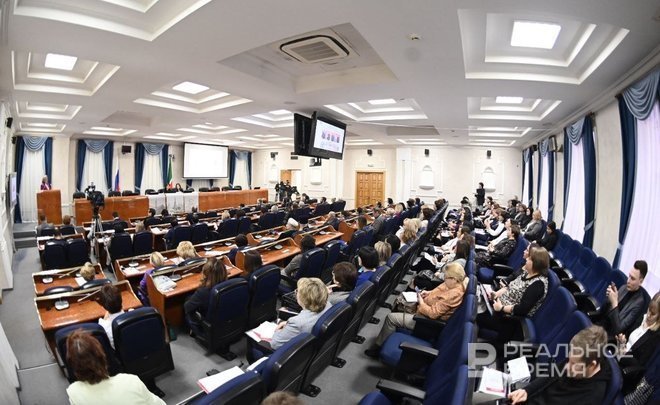
The most “respectable” Tatarstan couple of newlyweds in 2023 turned 169 years old for two: as the head of the department, Gulshat Nigmatullina, reported at a meeting of the board of the Civil Registry Office of the Cabinet of Ministers of the Republic of Tatarstan on 25 January, the marriage was concluded between an 88-year-old groom from Almetyevsk and an 81-year-old bride from Kazan. About family affairs, issues of life and death, education of young people in respect for legal marriage and digital services that help facilitate family life — in the report of Realnoe Vremya.
There are fewer newborns, but the birth rate situation is better
“By the end of 2023, 127,812 acts of civil status were registered in the Republic of Tatarstan and over 375 thousand other legally significant actions were committed," Gulshat Nigmatullina said and boasted of her achievements. “Tatarstan, as before, demonstrates the highest indicators in the field of family and demographic development among the regions of the Volga Federal District.
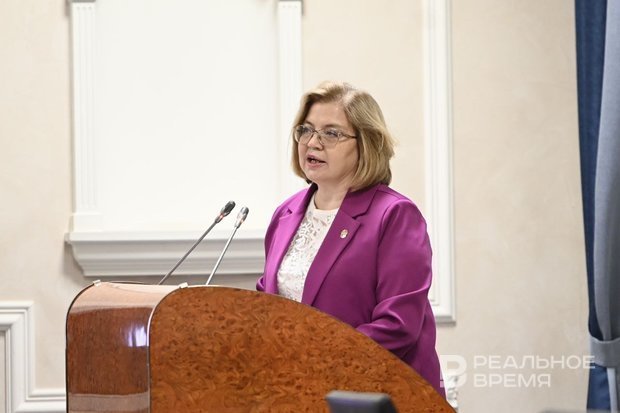
Noting that in terms of the absolute number and per 1,000 people of the population of the Republic of Tatarstan, it ranks first in the Volga Federal District in terms of registered child birth certificates, the head of the department added that in 2023 newborns were “registered” by 0.4% less than in 2022 — 36,766. And she immediately tried to smooth out the negative impression:
“At the same time, the rate of decline has noticeably slowed down compared to last year.
Tatarstan took the first place from the bottom in the Volga Federal District in terms of mortality — we have the lowest death registration rate per 1,000 people in the Volga Federal District.
“The decrease in this indicator, compared with 2022, amounted to almost 5 percent," Gulshat Nigmatullina noted. “A total of 42,736 death certificates were registered, which is less than in the pre-pandemic year 2019.”
They prefer to get on their feet and only then give birth to children
To the delight of those present at the board meeting, Deputy Prime Minister Leyla Fazleeva and Chairman of the State Council Committee on Social Policy Svetlana Zakharova, Head of the Registry Office, boasted about other achievements of Tatarstan:
“The number of large families in Tatarstan has been increasing continuously since 2008.”
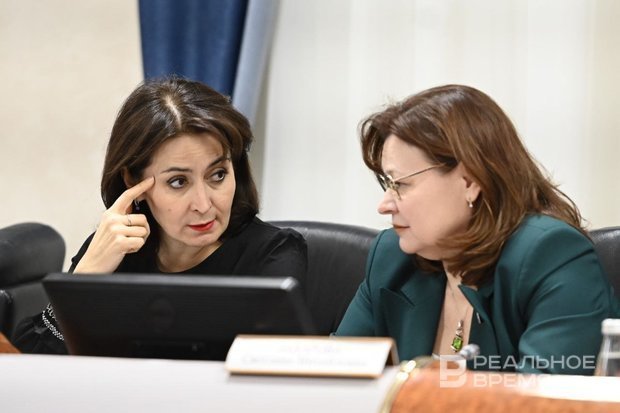
If 15 years ago only 8.6% of Tatarstan families decided on the third child, and 2.5% on the fourth, then in 2023, respectively, 9.5% and 7.7%. But as for the age of mothers, residents of Tatarstan — contrary to the calls of deputies and officials to give birth as early as possible — prefer not to rush and prepare for motherhood thoroughly. Only 19% of women give birth to their first child before they turn 25, 30% — between 25 and 30 years old, having received a profession and having prepared a financial “cushion”, 28% — in 30-34, 19% — in 35-40, and 4% — after 40.
Getting divorced has become more difficult
One of the important indicators of the success of the demographic policy pursued in the republic, from the point of view of the management of the Registry Office, is the number of divorces. In 2023, 14,266 of them were registered with 25,219 marriages (the highest figure in the Volga Federal District).
“For the second year in a row, there are fewer divorces registered by 2.1%," Gulshat Nigmatullina clarified. “In terms of the number of dissolved marriages, the republic has one of the lowest rates in the Volga Federal District (3.6 per 1,000 population). For comparison, in the neighbouring Orenburg region, it is 5.0, and in the whole country it is 4.7.”
At the same time, in Tatarstan, according to the statistics shown on the slides, there are 566 divorces per 1,000 marriages in 2023, whereas the average in Russia is 722, and in neighbouring Mari El — 812.
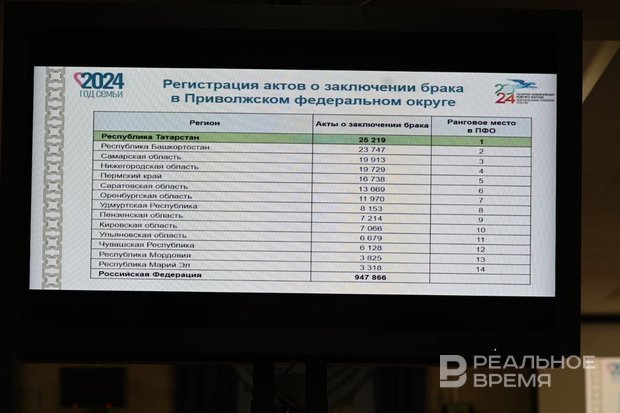
As it turned out, it becomes more difficult for Tatarstan citizens to get divorced from year to year: over 78% of marriage divorces were registered by the registry office of the republic in 2023 according to court decisions, and the courts make fewer and fewer absentee decisions on such claims from year to year (in 2021 — 31.4%, in 2022 — 29%, in 2023 — 22.7%). Whether this is good or bad is up to the divorcees to decide, because everything depends on how ready the spouse is to continue living in marriage and acquire “joint” property (and then divide it), who filed for divorce and did not wait for his second optional “half” to appear in court.
The courts rarely divorced spouses in absentia in Almetyevsk (four decisions), Alkeevsky (five decisions), Aktanyshsky (five decisions), and Alekseevsky (six decisions) districts. 21 such decisions were made in Kazan. The records were set by the Chistopol district (50 absentee divorces), Buinsky (42), and Novosheshminsky (41) districts.
Digitalisation will help us
Another reason for the pride of the Tatarstan Registry Office was the introduction of digital technologies: 7,687 children, that is, every fifth child in the republic in 2023, was registered online, without parents appearing at the registry office, with the help of the superservice “Birth Of A Child”.
Gulshat Nigmatullina reminded that this service gives the opportunity not only to register a child without leaving home, but also to “register” him at his place of residence, get an INN and SNILS for him, enroll in kindergarten, issue “child” payments. Since recently, another service has been launched — the selection of a name for a newborn, in the database of which there are several thousand Tatar and Russian names.
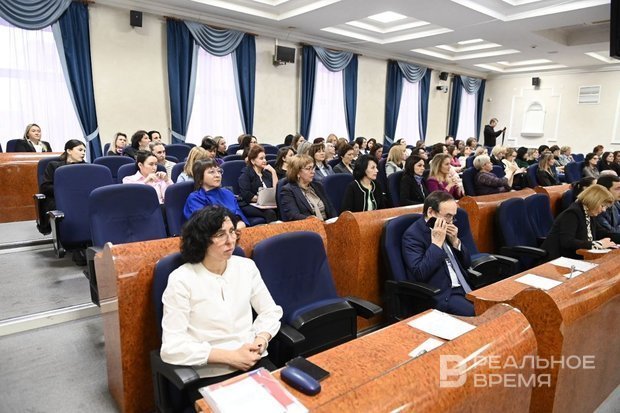
In 2023, 735,555 applications for civil registration were also submitted electronically. The largest number — more than 40 thousand — are applications for marriage registration.
In 2023, the registry office of the Republic of Tatarstan held 17,867 solemn wedding ceremonies, more than 11,000 naming ceremonies, 3,171 honouring couples of family life anniversaries, more than 1,900 of whom have been married for 50 years, and 369 are “diamond” anniversaries (60 years of marriage), one couple celebrated a “crown” wedding (75 years of family life).
Cohabitation and remarriage are not respected in Tatarstan
The head of the Center for Family and Demography of the Academy of Sciences of the Republic of Tatarstan, Chulpan Ildarkhanova, presented the results of a study entitled “Demographic paradoxes of the Republic of Tatarstan” at the board meeting. In particular, she said that the total fertility rate required for zero natural population growth in the republic in 2022 was 1.55 children in rural areas, 2.53 in urban areas, and 1.75 on average.
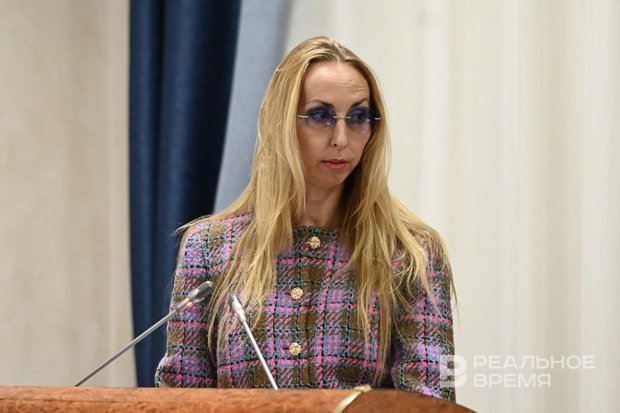
Judging by the slides presented by her, in 21 districts of the Republic of Tatarstan, the actual coefficient turned out to be lower, and its average value in Tatarstan as a whole was 1.43. Among the laggards are Arsky, Baltasinsky, Vysokogorsky, Atninsky, Buinsky, Kamsko-Ustinsky, Baltasinsky, Kaibitsky, Mamadyshsky, Laishevsky, Yelabuzhsky, Mendeleevsky, Bugulminsky, Leninogorsk, Zelenodolsky, Verkhneuslonsky, Zainsky and Drozhzhanovsky districts, as well as Kazan and Naberezhnye Chelny. It is not surprising that in 2022 there was a natural decrease in the population in Tatarstan — with a mortality rate of 10.1 per 1,000 inhabitants, there were only 9.1 births.
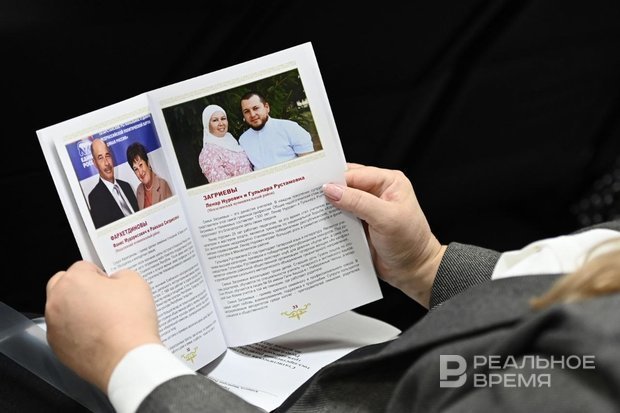
However, some optimism is inspired by that younger women give birth to more children. Thus, mothers born in 1975 in the Republic of Tatarstan accounted for an average of 1.6 children in 2023, and mothers born in 1983 — already 1.8.
And with great enthusiasm, Chulpan Ildarkhanova reported that cohabitation without marriage is completely unpopular in Tatarstan, which has been talked about so much lately as a threat to the stability of the institution of the family:
“In the Republic of Tatarstan, according to the 2022 census, 60 percent of men and half of women of working age were married. There are more officially registered relationships in Tatarstan than the average in the Russian Federation: among men — by 6 percent, among women — by 5 percent.”
And in Tatarstan, as it turned out, remarriage is unpopular. After divorce, 31% of men in the city and 23% in the countryside remarry, 32% of urban women and 25% of rural women remarry, whereas on average in Russia, respectively, 37% and 33% of men, 38% and 34% of women. At the same time, the main number of divorces — 30% — occurs in 5-10 years of married life, another 22% of dissolving marriages have “experience” over 15 years.
The main thing is to inform the population reliably
“We are entering a new creative year... a special year, the Year of the Family," Deputy Prime Minister Leyla Fazleeva recalled, summing up the meeting, and stressed the importance of policies for the formation and preservation of family values and traditions.
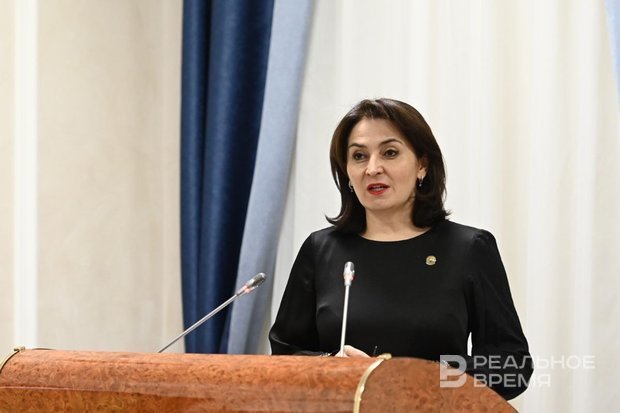
She said that “we will continue to talk about traditions, family dynasties, national rituals, and stressed that Tatarstan has created “very high-quality conditions for the work of such industries as education, healthcare, culture," and recalled that education workers “are expected to form the very same in collaboration with parents family moral values, which are extremely necessary today for all those who live in the Russian Federation.”
Leyla Fazleeva drew the attention of those present to that local officials should pay careful attention to the figures provided by the media and characterise the demographic situation in order to avoid “unreliable informing of the population.”